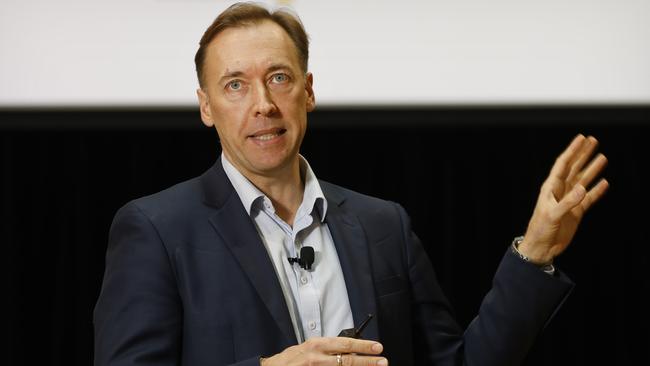Commonwealth Bank ramps up green push, inks CoGo carbon offset partnership
CBA is pushing further into green banking and services with technology that gives customers direct insight into their carbon footprint.

Commonwealth Bank is pushing further into green banking and services with technology that gives customers direct insight into their carbon footprint and offsetting it, marking its fifth recent initiative in the sector.
CBA is partnering with fintech CoGo and starting a pilot on Tuesday for thousands of personal banking customers, hoping to make the technology available to all retail customers by the year’s end. It will also be introduced to CBA’s business and institutional customers in 2022.
CoGo – which is based in New Zealand, the UK and Australia – counts 35 UK banks including NatWest, formerly the Royal Bank of Scotland, as a customer. It also has deals with a handful of banks across the Tasman, including Westpac New Zealand.
In Australia, credit scoring and data firm Experian last month announced a tie-up with CoGo that will allow customers to track their carbon emissions through banking apps.
CBA’s head of retail banking Angus Sullivan said the shift into further green initiatives via the bank’s app came in response to overwhelming customer feedback.
“One of the most important factors for a lot of Australians at the moment is making a difference on that (carbon emissions) front, and obviously we are motivated to respond to what our customers are telling us,” he added.
The partnership – which does not earn the bank revenue – will see CBA draw on CoGo’s proprietary technology and algorithm and run it over a customer’s bank account transaction information, to screen for how the spending equates to carbon emissions.
That information is then presented to the customer across all their shopping and spending, and will eventually allow a comparison or ranking compared to other customers.
There will then be the opportunity to offset the prior month’s transactions by buying carbon credits and participating in green initiatives such as bushland regeneration.
Airlines have been offering carbon offsets for flights for some years and companies such as EnergyAustralia also have carbon offset programs, to cancel out a consumer’s emissions.
Mr Sullivan said the new CBA partnership gave customers the chance to look across all their spending and offset the “entire aggregation”.
“We will start with just working off the data that we put into the algorithm, obviously we are very conscious of not sharing our customer’s information externally,” he added.
“We haven’t completely nutted out how and what magnitude we can bring together both parts of those (personal and business customers) … there is an incredible opportunity to be part of really kickstarting the opportunity to commercialise more of that carbon trading and put more of that power in the hands of consumers and put the value, without a lot of intermediation, into the hands of business customers as well.”
But CBA is embroiled in a spat with activist group Market Forces over the bank’s updated climate policy, and is accused of undermining existing commitments.
Market Forces said despite CBA’s pledge to achieve net zero emissions by 2050, the bank’s policy set “glide paths” for fossil fuel sectors aligned with an International Energy Agency sustainable development scenario to achieve the target by 2070.
On the criticism, Mr Sullivan said the bank was not engaging in green washing in its statements or via its partnerships.
“The scrutiny is good, we welcome it, but I’m very confident that what we’re doing and our motivation is genuine. We want to make a big difference.”
Early this year, CBA started a pilot for a green loan allowing existing and new mortgage customers to borrow up to $20,000 charged at 0.99 per cent annually. Other green measures include a tie-up with renewable energy retailer Amber, sustainability-linked agriculture loans and a property sustainability upgrade loan for commercial buildings.
Mr Sullivan said CBA was integrating more third parties across home, shopping and green services into its digital ecosystem, where as many as 8 million customers engaged with the bank every day. CoGo is the 15th external party to partner with the bank in this way.
CoGo founder and chief Ben Gleisner said businesses and consumers were looking for greater transparency around their carbon footprint.
“We’re proud to be working with CBA on this … which will not only empower Australian businesses and consumers to understand their carbon footprint, but take active steps towards doing something about that footprint,” Mr Gleisner added.
But the CBA partnership also comes as Fortescue Metals chairman Andrew Forrest took a swipe at the carbon offset industry, despite his company making initial use of them.
“You need to make sure they (offsets) are very sincere,” Mr Forrest said in a podcast, noting that Fortescue would move away from using them when it had made the requisite investment. “There are scams in the offset industry.”
CoGo’s pilot with NatWest showed the average user saved approximately 11kg of CO2 emissions per month by making behavioural changes using less carbon such as composting.








To join the conversation, please log in. Don't have an account? Register
Join the conversation, you are commenting as Logout